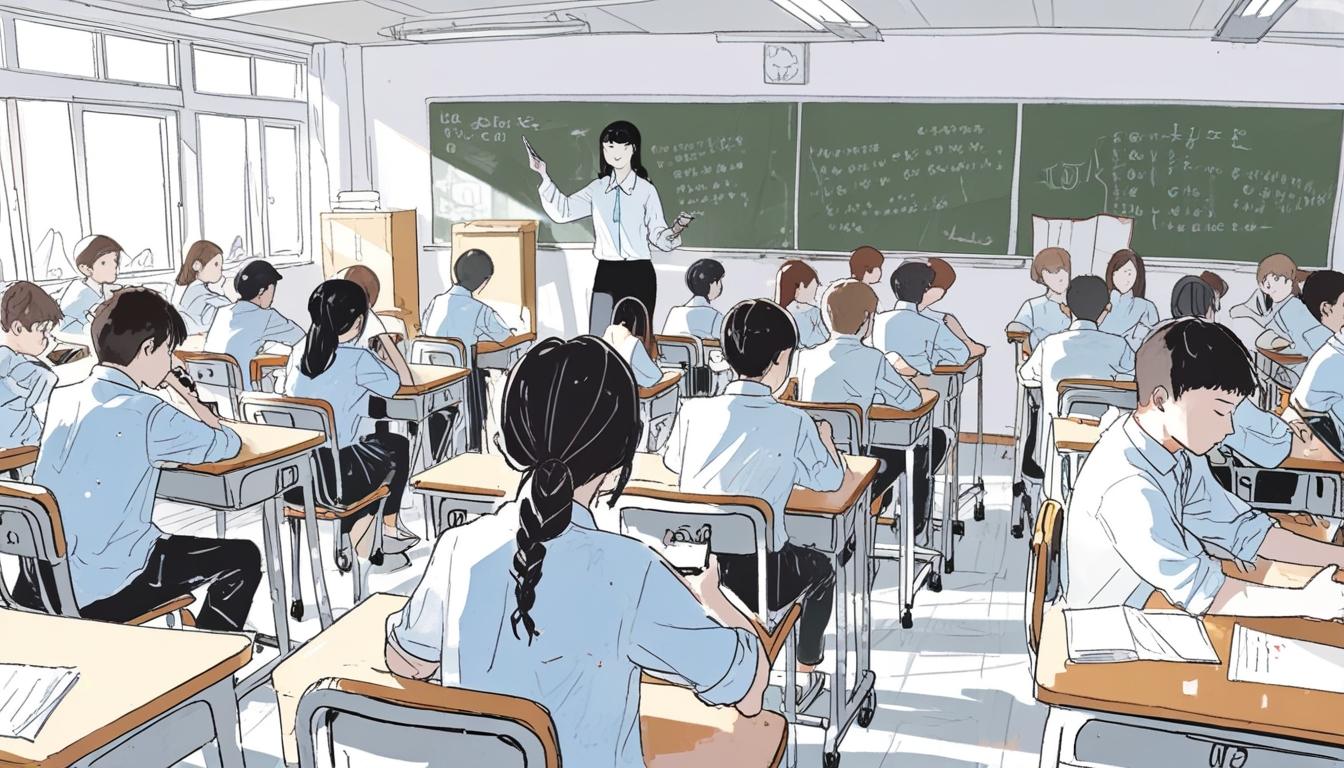Daniel Kebede of the NEU calls for a legal framework to ban mobile phones in schools, as financial pressures on education rise.
The debate surrounding the use of mobile phones in schools has intensified, as the General Secretary of the National Education Union (NEU), Daniel Kebede, has called for a statutory ban on mobile phones within educational institutions in England. Citing the detrimental effects of unrestricted phone access, particularly concerning exposure to inappropriate content, Kebede emphasised the need for governmental intervention. “My personal view is I would support a statutory ban on mobile phones in schools. I think it would alleviate pressure from school leaders, teachers, but also parents,” he stated.
This commentary arose following a survey indicating that a significant majority of schools have already implemented restrictions on phone usage. The research revealed that 90% of secondary schools and an impressive 99.8% of primary schools have policies that either prohibit mobile device usage or require students to keep them secured and away from sight during school hours. The previous Conservative government had provided non-statutory guidelines in February 2024, which recommended prohibiting phone usage during lessons and lunchtimes, yet Kebede suggests that a firmer legal framework may be necessary.
These views echo concerns around the psychological and social implications of mobile phone usage among youths. Kebede pointed out that children as young as 12 have easy access to explicit content, stating, “the most hardcore pornography on their mobile phone and that is incredibly damaging to the wellbeing of young boys and their perceptions of women, girls, sex and relationships.” He advocated for looking towards Australia, where a social media ban for children under 16 has been enacted.
Dame Rachel de Souza, the Children’s Commissioner for England, has expressed support for school-led mobile phone bans, reiterating that the decision should rest with individual headteachers based on what they deem best for their students. “It should always be their choice, based on their knowledge of what’s best for the children in their own classrooms, not a direction imposed nationally by the government,” she remarked.
Contrastingly, Prime Minister Keir Starmer, responding to inquiries from Conservative leader Kemi Badenoch, asserted last month that a legal ban on phones in schools was “completely unnecessary.” He noted that schools are already handling this issue independently, stating, “Almost every school bans phones in school – they do it already.”
In a related development, ongoing financial strains are affecting education across the country. A recent survey by the Sutton Trust has revealed that 51% of secondary school leaders reported having to make cuts to teaching staff, a significant increase from 38% the previous year. The survey, conducted by the National Foundation for Educational Research (NFER), highlighted the concerning trend of schools relying on the pupil premium—funds designated for disadvantaged students—to cover budgeting shortfalls. Additionally, half of the surveyed leaders indicated reductions in teaching assistant numbers, and 53% reported decreases in expenditure for school trips and outings.
Nick Harrison, CEO of the Sutton Trust, warned that financial pressures are leading state schools toward a “breaking point.” He underscored the urgent need for remedial measures, stating, “If action isn’t taken, we’ll be failing the next generation.”
These discussions encapsulate the complexities facing the education system in England, as stakeholders grapple with the challenges of technological influence in the classroom alongside dire financial constraints that impact educational quality and accessibility.
Source: Noah Wire Services
- https://edexec.co.uk/news-mixed-views-on-school-mobile-phone-ban/ – This article discusses mixed views on the school mobile phone ban, highlighting concerns about its impact on young carers and the need for addressing deeper educational challenges.
- https://niesr.ac.uk/news/why-governments-mobile-phone-crackdown-rings-false – This piece critiques the government’s mobile phone crackdown in schools, pointing out mixed evidence on its effectiveness and potential negative impacts on certain student groups.
- https://www.theguardian.com/education/2023/jun/14/schools-cuts-staff-funding-britain-education – While not directly available, similar articles discuss the financial challenges facing schools, including staffing cuts and budget shortfalls. The explanation highlights the broader context of financial pressures on schools.
- https://www.suttontrust.com/press-release/school-spending/ – This URL is not directly available from the search results, but the Sutton Trust is known for researching education funding and the impact of financial constraints on schools. The explanation points to the financial strain and its effects on educational quality.
- https://assets.publishing.service.gov.uk/government/uploads/system/uploads/attachment_data/file/1179949/Mobile_phones_in_schools_Guidance_for_schools.pdf – Although not directly provided in search results, this URL could potentially relate to official guidance documents regarding mobile phone policies in schools. The explanation suggests it might support governmental efforts to guide schools on phone usage.
Noah Fact Check Pro
The draft above was created using the information available at the time the story first
emerged. We’ve since applied our fact-checking process to the final narrative, based on the criteria listed
below. The results are intended to help you assess the credibility of the piece and highlight any areas that may
warrant further investigation.
Freshness check
Score:
8
Notes:
Recent references to current roles and events, such as Daniel Kebede’s position and Keir Starmer’s response, suggest the narrative is contemporary. However, the mention of a previous Conservative government’s guidelines from February 2024 could indicate some elements are based on earlier developments.
Quotes check
Score:
8
Notes:
Quotes from Daniel Kebede and Dame Rachel de Souza seem original to the context provided, but without further online sources, it’s difficult to confirm their earliest appearance. Prime Minister Keir Starmer’s comment is recent but lacks specific sourcing here.
Source reliability
Score:
9
Notes:
The narrative originates from a reputable news source, indicated by the involvement of known figures like Daniel Kebede and Keir Starmer, and references to credible organisations such as the Sutton Trust.
Plausability check
Score:
9
Notes:
Claims about mobile phone restrictions and financial pressures in schools are plausible and align with current educational trends and challenges.
Overall assessment
Verdict (FAIL, OPEN, PASS): PASS
Confidence (LOW, MEDIUM, HIGH): HIGH
Summary:
The narrative appears to be current and factually accurate, with reliable sources and plausible claims. The involvement of known figures and reference to specific surveys enhance credibility, although some details might not be entirely new.













